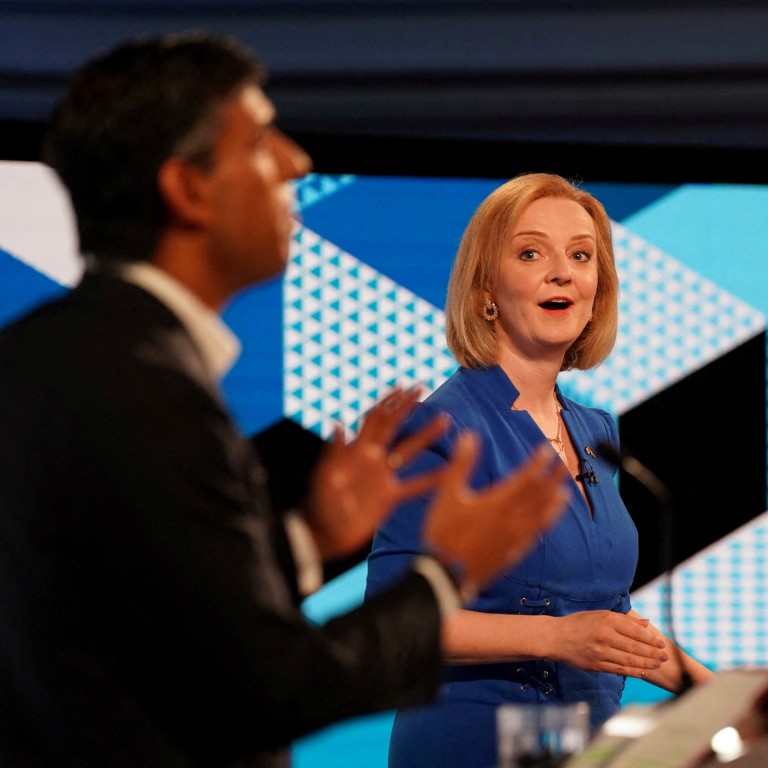
The UK’s next prime minister will preside over a bleak economy
- The leadership race has been driven by debate about taxation, inflation and the Thatcherite legacy
- It bears noting that the tax-cutting plans of Liz Truss, the front runner, are expected to translate into lower public spending and even austerity
British Foreign Secretary Liz Truss, the front runner to succeed Boris Johnson as prime minister, made the remarkable claim last month that an end is needed to what she called a failed consensus “peddling a particular type of economic policy for 20 years” that hadn’t delivered.
While such criticism would not be unusual coming from an opposition politician, her statement is surprising in that it is the Conservatives who have been in office for the past dozen of the years in question, with Truss herself serving as a minister for much of that period, including in economic portfolios.
Truss argues that, just as Thatcher tested widely held policy beliefs in the 1980s, it is time for her to do the same in the 2020s with tax cuts. Truss is therefore heavily critical of Sunak’s period of office, particularly his tax increases.
She has pledged to “start cutting taxes from day one”, reverse April’s rise in national insurance, and abolish next year’s corporation tax hike from 19 to 25 per cent.
She has not explained how she would pay for the £30 billion (US$35.12 billion) in tax cuts she has promised, but insists they can be paid for within the “existing fiscal envelope”. Truss insists that cutting taxes will help curb inflation, and that “what is not affordable is putting up taxes, choking off growth, and ending up in a much worse position”.
The real answer to inflation that no one wants to hear: stop spending
To be sure, the former chancellor has promised to “deliver tax cuts that drive growth”, but in a “responsible” way and only “after we’ve got a grip of inflation”. He says plans to raise borrowing to pay for tax cuts are “comforting fairy tales” and economically illiterate.
To be clear, this is not an economic disagreement, but a philosophical one. While Truss says imposing higher taxes during a cost-of-living crisis is “morally wrong”, Sunak asserts that “it’s immoral” to pass on the country’s credit card bills to future generations.
Important as this debate about taxation is, however, it has obscured other critical issues. As the widely respected think tank, the Institute for Fiscal Studies, has highlighted, for instance, the two candidates have been less than forthcoming about their intentions for public spending.
This is particularly odd as the so-called “levelling up” agenda, which centres around investment into areas of central and northern England that lag economically behind the wealthier south, has been key to the ambition of the Boris Johnson government, in which both served after the 2019 landslide victory.
To be sure, Sunak has been more open about these issues, and indeed his campaign has attacked Truss’ emergency tax-cutting budget.
One senior Tory MP highlighted that her proposals would give a £1,800 tax cut to the prime minister, but only £59 to someone working full time on the national living wage, and “nothing at all” to pensioners. Truss’ plan to reverse the national insurance increase, which Sunak brought in as finance minister to boost National Health Service and social care funding, has also come under fire for not offering enough to help the most vulnerable.
Moreover, the Institute for Fiscal Studies has said Truss’ plans are likely to bring a return of austerity, like in the years under David Cameron’s prime ministership, because “in the end lower taxes do mean lower spending”.
Andrew Hammond is an associate at LSE IDEAS at the London School of Economics

